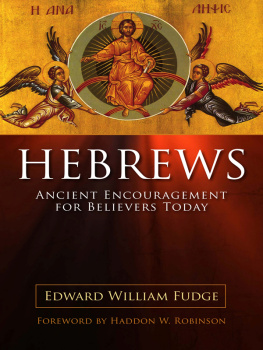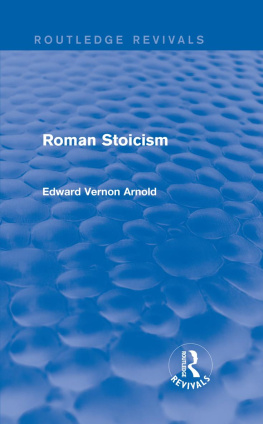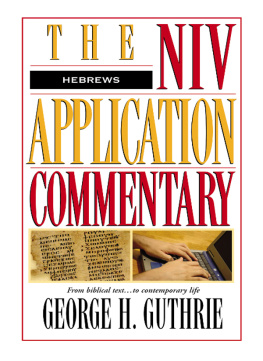First published in 1901
This edition first published in 2011 by Routledge
2 Park Square, Milton Park, Abingdon, Oxon, OX14 4RN
Simultaneously published in the USA and Canada
by Routledge
711 Third Avenue, New York, NY 10017
Routledge is an imprint of the Taylor & Francis Group, an informa business
All rights reserved. No part of this book may be reprinted or reproduced or utilised in any form or by any electronic, mechanical, or other means, now known or hereafter invented, including photocopying and recording, or in any information storage or retrieval system, without permission in writing from the publishers.
Publisher's Note
The publisher has gone to great lengths to ensure the quality of this reprint but points out that some imperfections in the original copies may be apparent.
Disclaimer
The publisher has made every effort to trace copyright holders and welcomes correspondence from those they have been unable to contact.
A Library of Congress record exists under LC Control Number: 01030573
ISBN: 978-0-415-68161-2 (hbk)
ISBN: 978-0-203-80478-0 (ebk)
The Semitic Series
THE SOCIAL LIFE OF THE HEBREWS
BY THE
REV. EDWARD DAY
LONDON
JOHN C. NIMMO
14 KING WILLIAM STREET, STRAND
MDCCCCI
CHAPTER I
INTRODUCTION
THE designation of the period of Hebrew life which is considered in this part of the present work is not as easy as it at first thought seems, for the term here employed, the usual one, is misleading, though perhaps not as misleading to many as some other might be. The time covered is from the settlement of Canaan to the monarchy. This was a period when the Hebrews for the most part were wanting in unity, when the clans grouped themselves in certain parts of Canaan, revealing in some instances their kinship, as in the case of the Leah and Rachel clans. If there had been something akin to national life prior to the settlement, during their nomadic wanderings, it must have grown very largely out of the circumstances of that life. When they entered Canaan, as there will be an endeavour to show later, they went up in groups to their various allotments or destinations and established themselves as best they could. Later, on rare occasions, clan aided clan, and on occasions rarer still, group or tribe aided some clan in extremity. Not apparently until near the close of this period, when the Philistines, more capable of united action than the Canaanites, came into prominence and set themselves to harry and to oppress the Hebrews, was there developed and manifested some considerable national spirit. The clans were then measurably drawn together under Saul, the son of Kish,1 who stood at the parting of the ways, partaking of the character of a local vindicator or deliverer. He prepared the way for David, in whom the monarchy really had its origin.
The so-called Judges were necessarily limited in influence, both as to territory and as to time. As vindicators or deliverers their work was in each instance confined to a comparatively small section of the land. When their work was done, though they may not have sunk into obscurity, they ceased to control or to rally and to lead. Judges they never became in the popular understanding of the term. Much, then, as we may object to the term, the Time of the Judges, on the grounds mentioned we still retain it.
Scholars are no longer able to accept the chronology of the Book of Judges. The figures given belong to the additions made to the texts by late redactors and are as unreliable as are the statements that these different heroes individually ruled over all Israel. Instead of a period of four hundred years, we have but two hundred and fifty or three hundred years at most,2 though we include the days of Samuel and Saul which present substantially the same type of social life.
But though we, after bringing this period down to the close of the life of Saul, shorten it as compared with the old chronology one hundred to one hundred and fifty years, we have to admit its importance. Not until the last few decades of Old Testament study in the light of the higher criticism gave us our true perspective were we able to understand the mighty import of those transitional, yet formative, years of early Hebrew life. During this period the Hebrews ceased to be a pastoral, and became an agricultural, people. That this necessitated a momentous change in their social life must be evident to all who are familiar with the two types of civilisation. Then there were the changes that came from contact with the Canaanites; and later those that grew out of the hostility and pressure of the Philistines.
The old view, according to which a monotheistic people, numbering several millions, passed into a land that of right was theirs, exterminating its inhabitants, and, save for occasional relapses, prospered and multiplied until they were ready for a king for whom they were so foolish as to ask, is discredited in the light which patient investigation has thrown upon the period. Instead of this we have various clans, containing at the most a few thousand each, making with all that it involved socially the mighty change from a nomadic to an agricultural life while at the same time changing radically their environment. During this period ideals and institutions were forming that later played an important part in the life of the people, while at the same time they were slowly drawn together as their interests became one in face of a common peril. Civilised they did not, in our modern acceptation of the term, become; far from it; but they made great strides in this direction and secured in so doing some intellectual and moral values that marked a decided advance in thought and religion.
This period, then, so important, is here studied as the earliest period, for back of it we can go but a little way. We may take it for granted that the Hebrews had lived in Egypt and had there felt the lash of the task-master. The statement of Dr. Budde in The Religion of Israel to the Exile, p. 10, is one which we can readily endorse: The Israelites knew that their forefathers had been restored by the help of their God from Egyptian bondage to the freedom of the steppe, and thence led to their permanent abode. The witness of the historical documents to this fact does not stand alone. The earliest prophets presuppose it as an incontestable truth. It is inconceivable that a free people should have stamped on the memory of their ancestors the brand of a disgraceful servitude unless it had a foundation of historical truth. All that can be considered doubtful is whether it was the whole people of Israel that fell under the Egyptian bondage, or Joseph alone. Admitting all this, we still have to confess that we know next to nothing of the social life of the Hebrews during the time of their Egyptian sojourn; but we may safely say that prior to their entering Canaan they had for a long time lived as nomads and that their life for centuries had presumably been essentially nomadic. It was probably as shepherds that they were known even in Egypt. But though they lived as nomads before entering Canaan, the records of their desert life are well nigh as scanty as those of the Egyptian period. Of authentic contemporary literature we have little. It is a well-known fact that the material in Exodus, Leviticus, and Numbers that professes to be contemporary is largely1 exilic, while Deuteronomy belongs to the days of Josiah. With so little material at our disposal, it seems unwise to attempt to reconstruct the social life of that period in a separate part; but it may be carefully studied in connection with the settlement of, and later life in, Canaan. By way of contrast the old life may in its more distinctive features be brought out while dwelling upon the settled, agricultural life, thus adding to the interest of the story of the social life in the time of the Judges.












